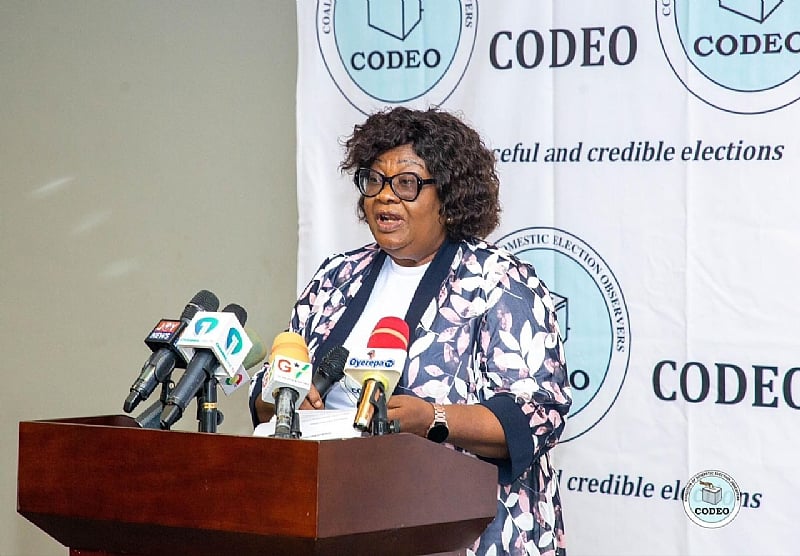Mrs. Elizabeth Villars, Co-chair of the Advisory Board of the Coalition of Domestic Election Observers (CODEO), recently characterized the 2020 general elections in Ghana as the most violent in the history of the Fourth Republic. During an event on October 17, where CODEO launched its Election Day and Post-Election Action Plan in anticipation of the 2024 elections, she emphasized that despite Ghana’s history of relatively peaceful electoral processes since 1992, the brutalities associated with the 2016 and 2020 elections severely undermined the progress achieved by the Electoral Commission (EC). Her remarks underline the importance of all stakeholders collaborating to foster a credible and peaceful electoral environment in the upcoming elections.
Since the initiation of multiparty democracy in 1992, Ghana has conducted eight consecutive general elections, which have generally been regarded as peaceful and credible. Such peaceful elections are a rarity across the African continent. Villars noted that Ghana’s democratic resilience has witnessed notable electoral turnovers and gradual reforms aimed at enhancing the electoral process’s administration. However, the persistent issues during the 2016 and 2020 elections, namely chaotic processes involved in results collating and transmission, have prompted concern. These challenges culminated in instances of violence, claiming lives and marking the 2020 elections as the deadliest in the nation’s recent history.
CODEO has underscored its commitment to promoting peaceful elections and is actively collaborating with various entities, including the EC, as part of its mandate to ensure that the electoral process unfolds in a stable and secure environment. The organization is convinced that addressing the adversities encountered in previous elections requires cooperative effort among government bodies, civil society, and political entities. The focus for the upcoming elections should pivot to guaranteeing a seamless electoral experience, learning from past mistakes, and neutralizing potential triggers of conflict or violence.
In preparation for the December 7 elections, CODEO plans to deploy 4,000 observers across the nation. This large-scale observation initiative aims to facilitate comprehensive oversight during the electoral process. The observers will be stationed at selected polling locations to monitor activities, beginning from the opening of the polls through to the voting, counting, and declaration of results stages. This significant presence of observers is intended to foster transparency and accountability in the electoral process, allowing for real-time independent assessments based on carefully gathered observations.
An integral part of CODEO’s observation strategy is the implementation of the Parallel Vote Tabulation (PVT) system. The PVT is designed as a citizen-driven mechanism that empowers citizens to monitor polling conduct on Election Day and serves to validate the official presidential results proclaimed by the Election Management Bodies (EMBs). This approach aims to enhance the credibility of the electoral outcomes and reinforce public confidence in the integrity of the electoral process.
As Ghana approaches the 2024 elections, the collaborative efforts of organizations like CODEO alongside the Electoral Commission and various stakeholders serve a crucial role in ensuring a peaceful, credible, and equitable electoral landscape. The reflections on past electoral violence starkly highlight the need for vigilance and proactive measures to avert a recurrence of such incidents. Building on the successes of previous elections while addressing the vulnerabilities exposed during the 2016 and 2020 elections will be essential in solidifying Ghana’s position as a beacon of democracy in the region.














